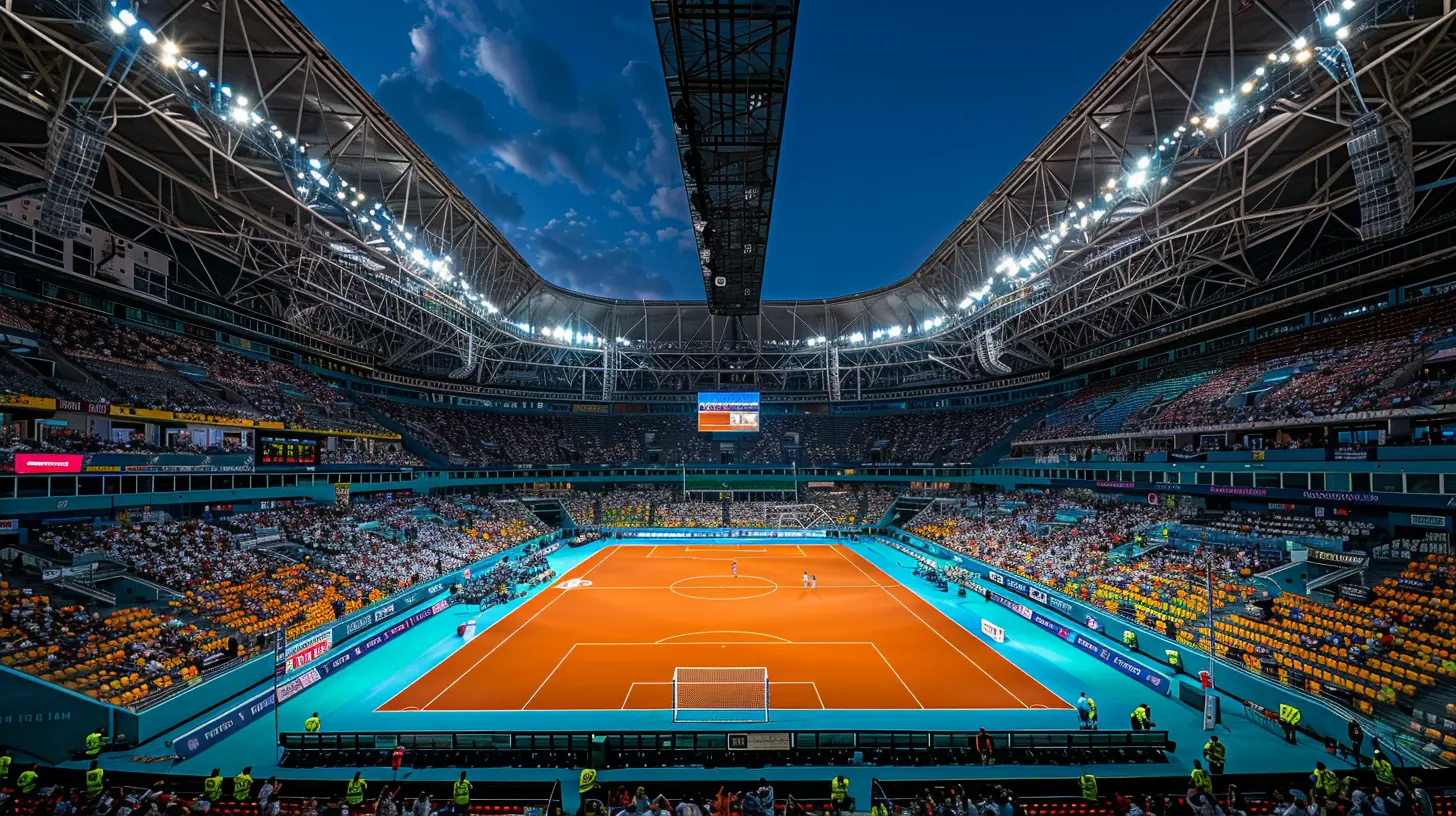The Role of Home Advantage in World Championships
22 May 2025
When it comes to sports, every little edge matters. The difference between victory and defeat can be razor-thin, and one of the most debated factors influencing performance is home advantage. Whether it’s the roaring crowd, familiar surroundings, or lack of travel fatigue, playing on home soil has historically been a game-changer—especially in World Championships. But how much of a difference does it truly make? And why does it have such a profound impact on performance?
Let’s break down the magic behind home advantage and why it plays such a crucial role in the biggest sporting events on the planet. 
What is Home Advantage?
Home advantage refers to the edge that teams or athletes gain when competing in their own country, city, or home stadium. It’s a phenomenon seen across multiple sports, from football and basketball to tennis and combat sports. The numbers don’t lie—historically, host nations perform better when playing at home.Think about it. If you were preparing for the biggest challenge of your life, wouldn't you feel more confident in your own backyard rather than in an unfamiliar, hostile environment? That’s exactly what athletes experience during World Championships. 
Why Does Home Advantage Matter in World Championships?
1. The Roaring Home Crowd
Fans are the heart and soul of sports. They create an electrifying atmosphere that can fuel an athlete’s performance. Imagine being an athlete walking out to a stadium where thousands of people are chanting your name. It’s adrenaline on steroids.For home teams, that energy acts as a boost, pushing them beyond their limits. On the flip side, for the visiting team, it can be daunting. The boos, jeers, and deafening noise can rattle confidence and break focus.
Psychologists have even suggested that the home crowd influences referees, often leading to more favorable decisions for the hosts. Studies show that home teams receive fewer penalties and more lenient officiating, sometimes subconsciously influenced by the intimidating presence of a biased crowd.
2. Familiarity with the Environment
There’s no place like home, right? Athletes who compete in familiar surroundings enjoy several advantages:- Climate and Weather: Being accustomed to the local weather conditions (humidity, altitude, temperature) can be a game-changer. Visiting teams often struggle to adapt in time.
- Playing Surface: Whether it’s baseball turf, tennis courts, or football pitches, familiarity with a home surface means athletes are better prepared for its quirks.
- No Jet Lag: Traveling across time zones takes a toll on the body. Home athletes don’t have to deal with tiring flights, time zone adjustments, or disrupted sleep patterns.
For example, studies in football (soccer) have shown that teams traveling long distances perform worse than those playing at home. Legs can feel heavier, reflexes slower, and energy levels lower. It’s like trying to run a sprint after a long-haul flight—not exactly ideal for peak performance.
3. Psychological Edge
The mental side of sports is just as crucial as the physical. Competing at home comes with a sense of pride and responsibility. Athletes know they are representing their nation in front of family, friends, and supporters.This fuels an unstoppable mindset—one where players push through pain, fatigue, and doubt because they refuse to disappoint their homeland. Conversely, visiting athletes might feel additional pressure, struggling against both the opponent and an unsupportive crowd.
A great example? The 2018 FIFA World Cup in Russia. The Russian national team—ranked outside the world’s top 60 before the tournament—managed to pull off shocking victories and reach the quarter-finals, riding the wave of home support.
4. Historical Data Doesn’t Lie
If you look at data from past World Championships, the home advantage is evident.- Olympics: Host countries often outperform expectations. China in 2008, Great Britain in 2012, and Brazil in 2016 all saw significant medal boosts when hosting the Games.
- Football World Cup: The majority of host nations outperform their historical average when staging the World Cup.
- Tennis Grand Slams: Home favorites like Rafael Nadal in France (Roland Garros) and Roger Federer in Switzerland have historically been dominant on their home turf.
These numbers prove that location isn’t just a coincidence. There’s a science behind home advantage, and it consistently delivers results. 
Are There Any Downsides to Home Advantage?
While the benefits of playing at home are undeniable, there can be downsides:1. Increased Pressure
Playing in front of a home crowd is a double-edged sword. While it can fuel motivation, it can also bring intense pressure. Athletes don’t want to disappoint their country, and sometimes that pressure leads to cracks under stress.For example, Brazil’s 7-1 loss to Germany in the 2014 FIFA World Cup semi-final was one of the biggest meltdowns in sports history. Experts believe the immense home expectations played a role in their disastrous performance.
2. Overconfidence
Playing at home sometimes creates a false sense of security. Some athletes or teams may underestimate their opponents, believing that home advantage alone will carry them through. This complacency can lead to embarrassing upsets.
Does Home Advantage Determine the Outcome?
Is home advantage a guaranteed ticket to victory? Not necessarily. While it provides significant benefits, it doesn’t replace talent, strategy, and preparation. The best teams and athletes still need to perform at their peak to make home advantage count.The most successful host nations are the ones that combine home advantage with skill, preparation, and mental toughness. It’s the icing on the cake—not the entire cake itself.
Conclusion
Home advantage is a real and powerful factor in World Championships. From the energizing support of the home crowd to the familiarity of local conditions, it provides athletes with a much-needed boost. However, it also comes with pressure, requiring mental strength to fully capitalize on it.At the end of the day, home advantage is one of the most thrilling aspects of sports. It adds drama, excitement, and unpredictability, making World Championships even more special.
So, next time you watch a big sporting event, keep an eye on the host nation—history suggests they might just have an edge!
all images in this post were generated using AI tools
Category:
World ChampionshipsAuthor:

Nelson Bryant
Discussion
rate this article
3 comments
Marigold James
Home fans ignite performance.
June 9, 2025 at 12:04 PM

Nelson Bryant
Absolutely! Home fans create an electric atmosphere that boosts players' confidence and enhances their performance, making a significant impact on the outcomes of championships.
Norah Vaughn
Home advantage can significantly influence performance in World Championships. Familiar surroundings foster comfort and confidence, while passionate local support amplifies motivation. However, true champions rise above circumstances, proving that skill and resilience often triumph over locale.
May 27, 2025 at 1:08 PM

Nelson Bryant
Thank you for your insightful comment! I completely agree—while home advantage can boost performance through comfort and support, the determination and skill of true champions ultimately shine through, regardless of location.
Raven Clayton
Home advantage plays a crucial role in World Championships, influencing team performance through familiar environments, fan support, and reduced travel fatigue. Statistics show that teams playing at home often outperform their opponents, highlighting the psychological and physical benefits. Understanding this dynamic can offer insights into strategies and predictions for future tournaments.
May 26, 2025 at 11:13 AM

Nelson Bryant
Thank you for highlighting the significance of home advantage! Your insights on its psychological and physical impacts on team performance are spot on and reinforce the need for strategic consideration in future tournaments.



